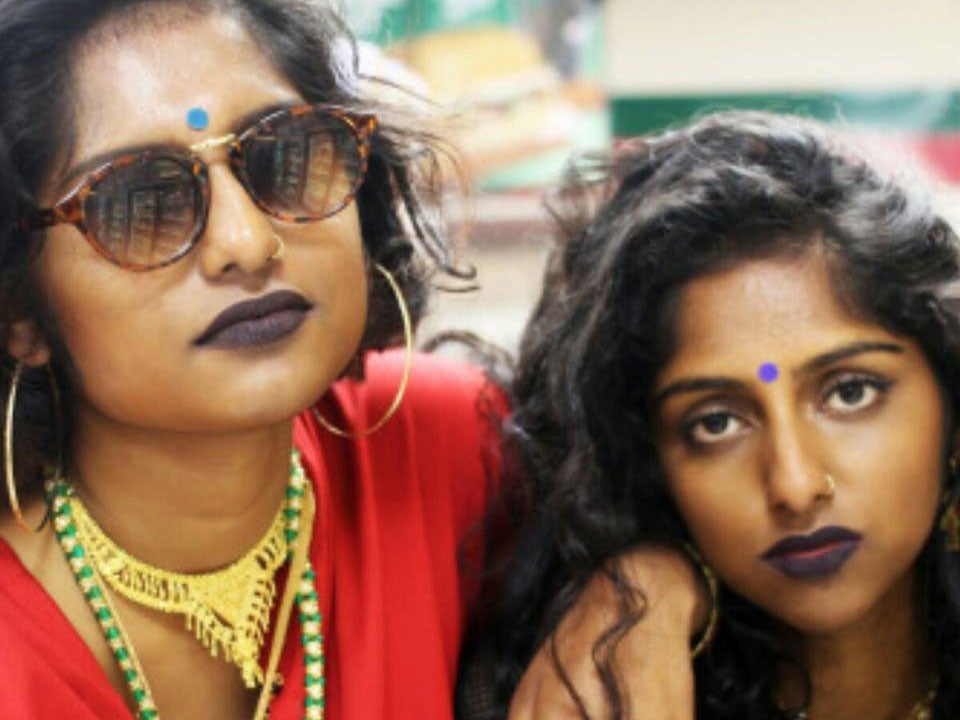#Unfairandlovely: The hashtag battling the prejudice for lighter skin
'I used to feel insecure and even wanted to get lighter skin. But as I grew up, I realised that beauty doesn’t lie in one skin colour'

An online campaign challenging prejudiced beauty ideals has taken the internet by storm after questioning the belief, held in many parts of the world, that lighter skin is more attractive.
#Unfairandlovely, has struck a chord with hundreds of women, particularly those in South Asia, where the phenomenon of colourism – the notion that fairer complexions are more desirable – is rampant, often leading people to extremes such as skin bleaching.
Conceived by 21-year-old University of Texas student Pax Jones, the campaign began as a photo series – “Unfair & Lovely” – named after the popular Indian skin-lightening cream "Fair and Lovely".
The pictures, showing her South Asian classmates, sisters Mirusha and Yanusha Yogarajah, highlighted their experiences of colourism and aimed to encourage women to embrace their skin colour.
Evolving the idea into a social media campaign, the operation invites women to post pictures of themselves online in an attempt to cast aside aesthetic biases.
The hashtag has made the issue a global talking point, giving women from a host of different countries a common platform to share personal stories of how colourism has affected them.
One woman, who posted a picture of herself as part of the campaign, said: “Thanks for the campaign. I am a social worker and the struggle I have gone through because of society’s obsession with fairness is a nightmare.”
Another woman, from India, said: “It’s becoming more and more difficult to feel confident in a world that predominantly supports white and light skin complexions.I know there are many situations where I have held myself back or felt excluded, not because I’m Indian, but because I’m not fair skinned.”
A woman posting from Delhi said: “I have been told that I’m too dark and should do something about it. I used to feel insecure and even wanted to get lighter skin. But as I grew up, I realised that beauty doesn’t lie in one skin colour.”
Over the years campaigns attempting to tackle bias beauty ideals have become more prominent and Unfair & Lovely joins a host of movements, including #Darkisbeautiful created by actress Nandita Das.
Despite this, fair skin still remains an ideal in many countries, and local advertising often plays upon this insecurity, with many adverts insinuating that having lighter skin will not only make you more attractive, but a better person.
Earlier this year a Thai beauty company was forced to apologise after using the tagline “being white makes you a winner” in an advert for its Snowz skin whitening pills.
A substantial number of African women also use whitening creams, with a 2008 EU Environment Programme study finding more than 75 per cent of Nigerian women purchase such products.
Even in the West skin bleaching has proved a controversial topic and advertisers have been criticised for lightening the skin of models and celebrities.
In 2014, Vanity Fair was accused of lightening Kenyan actress Lupita Nyong’o’s skin when she appeared as a cover star.
In 2012, pop singer Beyonce appeared significantly whiter in a L’Oreal Paris advertisement, while in 2011, Vogue issued a statement denying they had altered the colour of Rihanna’s skin on the front of their November issue.
Writing on Facebook, Unfair and Lovely’s founders said: “Many of the women, the majority of whom are from South Asia, say that they have felt under pressure to whiten their skin - from both society and their own families.
“For years, skin whitening products have pushed white Western beauty ideals. In fact it was only recently - within the past two years - that India's advertising watchdog banned any adverts suggesting that dark skin was inferior or undesirable."
It is due to these entrenched beauty ideals that model Mirusha Yogarajah wanted to be part of the campaign. She told the BBC: “We wanted to start a conversation and I think we have succeeded in that.”
Join our commenting forum
Join thought-provoking conversations, follow other Independent readers and see their replies
Comments
Bookmark popover
Removed from bookmarks